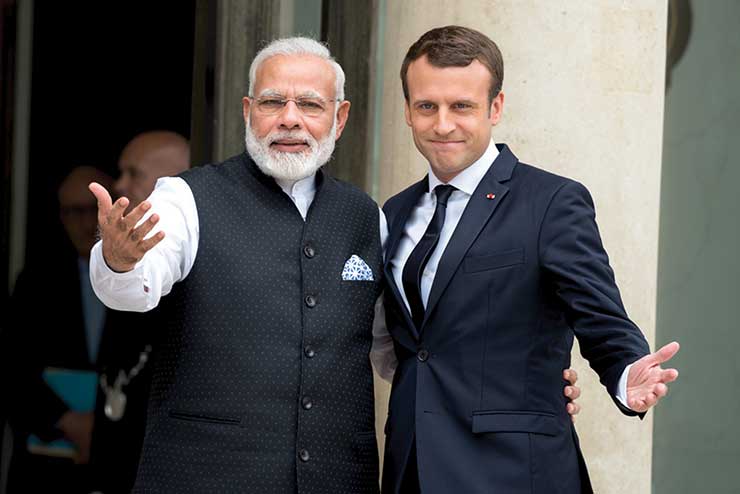
In the South Asian region, India appears to us as a factor of stability,” said French Minister of Europe and Foreign Affairs Jean-Yves Le Drian in a speech on Indo-French Defence and Strategic Partnership in July 2013. Indeed, India is seen as crucial partner to ensure a balance in the region irremediably dominated by an increasingly powerful and aggressive China. The Chinese have in present situation, when the deadly COVID 19 virus which had its origin in Wuhan, started adopting a tough posture along the Sino-Indian border in Eastern Ladakh and South China Sea flexing its muscles on the maritime front.
The partnership with India is therefore seen as a boon for France in order to weigh more on the front of strategic policies and the regional stability. Besides, the fight against International terrorism is a priority for both governments, considering that there has been increasing terrorist attacks in France while India has been battling this menace which is being encouraged by its neighbour – Pakistan.
It will be significant to note that Pakistan is carefully scrutinised by the French anti-terrorism services, due to which India appears as a key partner. The Minister of Defence of the French Republic Florence Parly affirmed that his country was “ready to share with India the military lessons drawn from its actions against terrorism. High risks exist beyond Mali in the other countries of the Sahel region and the entire geographic axis that runs from Pakistan to the North Atlantic.”
India has a big territory and must therefore deal with multiple threats on its borders, especially with China and Pakistan. These two neighbours have nuclear weapons and spend a large part of the State resources on military purposes.
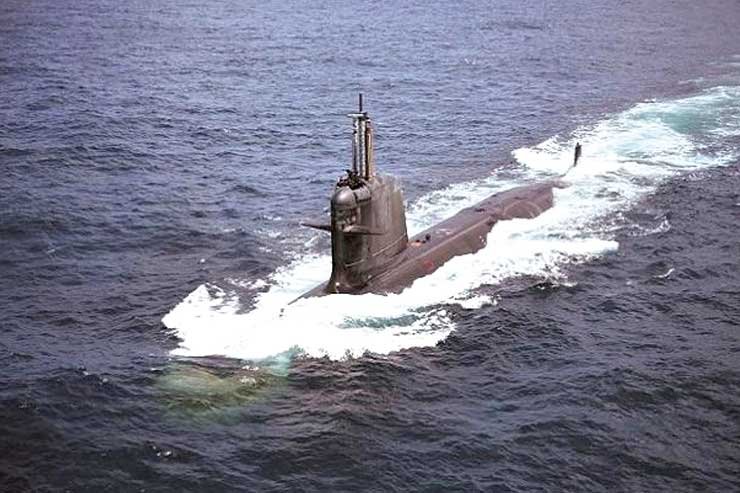
So, France sees the defence partnership as an opportunity to become the official supplier of India, which has bought military equipment, aircraft (Mirage 2000), submarines (Scorpène class), and missiles. More recently, India bought 126 Rafale Multirole Medium Range Combat Aircraft (MMRCA) for which negotiations had been on for several decades.
India, France Hold Annual Strategic Dialogue
New Delhi. India and France held their annual Strategic Dialogue in New Delhi on January 7. National Security Advisor Ajit Doval led the Indian delegation while the French delegation was led by Diplomatic Advisor to the French President Emmanuel Bonne. The last edition of the Strategic Dialogue was held in February 2020 in French capital of Paris.
The two sides held discussions on a variety of issues including counter-terrorism, cyber-security, defence cooperation, maritime security, regional and global issues and cooperation in the Indo-Pacific region. Both sides reaffirmed the high priority they accord to the India-France strategic partnership and highlighted the convergence of views between the two countries.
Following the Dialogue, Bonne also called on Prime Minister Narendra Modi, Defence Minister Rajnath Singh and External Affairs Minister Dr S Jaishankar, and met Foreign Secretary Harsh Vardhan Shringla. He also addressed the Vivekananda International Foundation (VIF) on “France and India: Partners for a stable and prosperous Indo-Pacific.”
During the meeting with PM Modi, the Prime Minister expressed his satisfaction on the progress both countries have made on key aspects of the India-France Strategic Partnership, including counter-terrorism, cyber-security, defence and strategic cooperation, and other areas of cooperation.
Bonne also briefed the Prime Minister on India-France cooperation on various regional and global issues, including maritime and multilateral cooperation.
French Ambassador to India Emmanuel Lenain was also present during Bonne-led meetings with Indian leadership.
The first five aircraft have already arrived in India, and are to be deployed along the Sino-Indian border. French President Emmanuel Macron’s 2018 visit to India oversaw the release of the ‘Joint Strategic Vision of India-France Cooperation in the Indian Ocean Region.’ Prime Minister Narendra Modi and Macron recognised “the crucial role that the multi-dimensional India-France strategic partnership will play in ensuring peace, security and stability and in bringing robust economic growth and prosperity” to the Indian Ocean Region (IOR).
This led to comparison with visit of American President Barack Obama in 2015, which saw the release of a separate statement on the “US-India Joint Strategic Vision for the Asia-Pacific and Indian Ocean Region.”
However, the India-France statement focussed solely on the Indian Ocean and even identified France as a “State of the Indian Ocean Rim Association (IORA),” given its overseas territories of La Réunion, Mayotte and French Southern and Antarctic Territories.
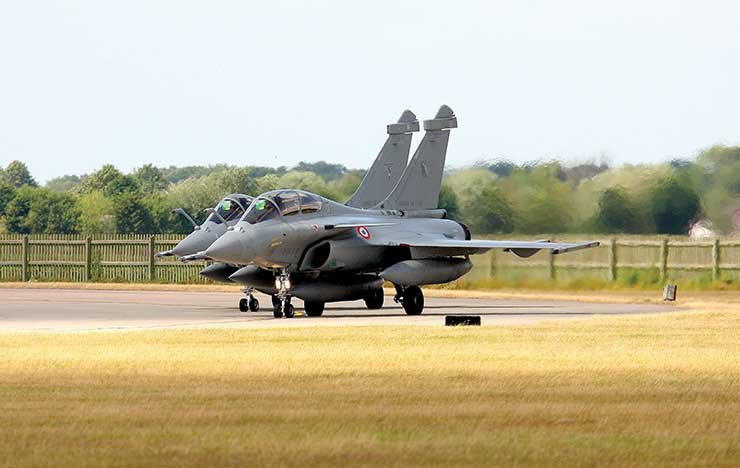
Another similarity between the trajectories of India-France and India-US ties has been the recent surge in defence trade. As per data from 2013-17 (compared with the previous five years), the US recorded an increase of 550 per cent in its arms exports to India. In the same timeframe, France recorded an increase of 572 per cent. Hardly moving towards the envisaged dynamic of co-production and co-development, the India-US case included India’s purchase of platforms like AH-64E Apache helicopters and CH-47F Chinook helicopters.
But, in the French case, the surge came at the hands of India’s 2016 purchase of the Rafale multirole fighter aircraft and the reinvigoration of the delayed Project-75 for technology transfer of Scorpene submarines. France’s support on the latter has been critical, in view of the US having tight restrictions on the export of submarines, a reduction in India’s dependence on Russian platforms due to threat of sanctions, and China outnumbering India with its operational fleet of submarines.
In addition, Project 75 is at the core of the Modi government’s push to cement India’s position as a submarine building nation, in sync with its ‘Make in India’ and ‘Atmanirbhar Bharat’ initiatives.
In late 2019, at an event hosted by the Observer Research Foundation, French Navy Chief Admiral Christophe Prazuck announced that India and France were in talks to hold Joint Patrols in the Indian Ocean. Subsequently, early this year, the two nations conducted a Joint Patrol from the Reunion Island, with French Navy personnel aboard an Indian Navy P-8I maritime surveillance aircraft.
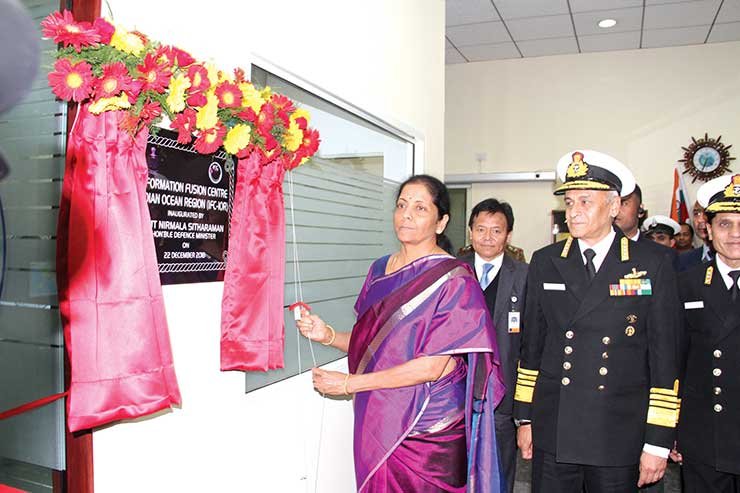
In addition, the India-France partnership has swiftly developed an appetite for lateral expansion, with the initiation of the India-France-Australia trilateral. Since its announcement by President Macron in 2018, the “Paris-Delhi-Canberra axis” has been institutionalised with the three partners finalising agreements on reciprocal access to each other’s military bases.
This bears significance for extending cooperation to the eastern flank of the Indian Ocean. In addition to France’s Reunion island, which provides access to the western/ southwestern Indian Ocean, partners will now have reciprocal access to the eastern/ southeastern Indian Ocean with Australia’s Cocos Islands (near the straits of Sunda, Lombok, and Ombai-Wetar) and India’s Andaman and Nicobar Islands (which overlook the strait of Malacca). Finally, this trajectory of India-France partnership stems from substantial policy-level convergences and is not merely the product of nascent conversations around European “strategic autonomy” or India’s intent to diversify its portfolio of strategic partnerships.
India’s decision to conduct Joint Patrols with France and not the United States fits squarely within India’s precedent of practicing its ‘Neighbourhood First’ policy for maritime cooperation. With France’s “resident power” status in the Indian Ocean, India then did not technically depart from its long-standing policy precedent.
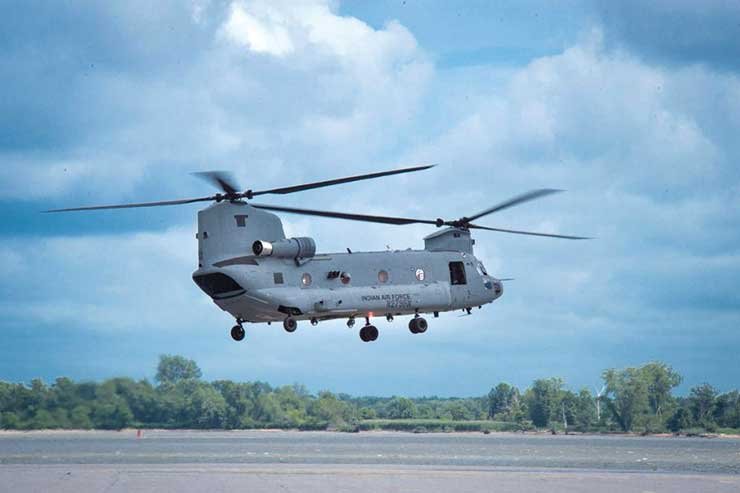
Furthermore, one may argue, France’s engagement in the Indian Ocean stems from it having real ‘skin in the game.’ Wherein, its overseas territories render the region to be a matter of sovereignty even for Paris. At the same time, the common prioritisation of the region does not seem to impede French acceptance of India’s natural providence over the Indian Ocean Region.
For instance, towards India’s gradual emergence as a net security provider in the region, India set up the Information Fusion Centre – Indian Ocean Region (IFC-IOR) to “engage with partner nations and multinational maritime constructs to develop comprehensive maritime domain awareness and share information on vessels of interest.” Headquartered in Gurugram, France was the first country to post its Liaison Officer at the IFC-IOR.
India-France defence ties have stemmed from a complete alignment of outlooks. Both countries for instance, have long championed a definition of the Indo-Pacific which extends to the shores of East Africa.
The convergence with France has led to India expanding its footprint, with Paris reportedly facilitating New Delhi’s desire to post a Navy Liaison Officer at the Regional Maritime Information Fusion Centre (RMIFC) in Madagascar. In addition, in view of India’s continued interests in the Persian Gulf and the Strait of Hormuz, France is also expected to oversee India’s inclusion in the European Maritime Awareness in the Strait of Hormuz (EMASOH) — which is headquartered at the French military base in Abu Dhabi, UAE.
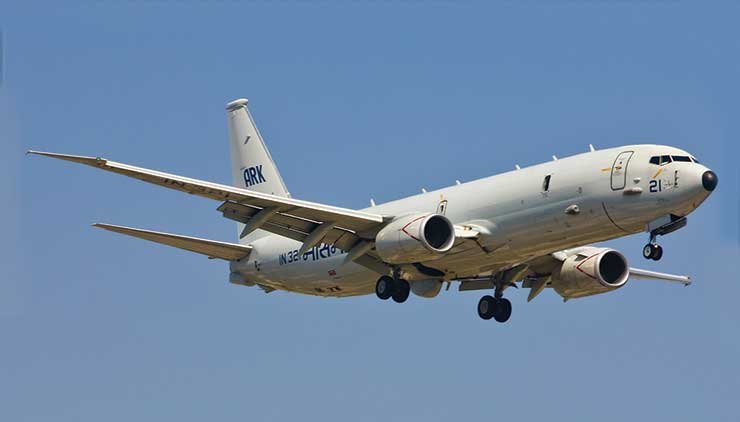
The enhanced Indo-French security co-operation offers an opportunity to address much wider issues, which would look into the present status of global order and define India’s status in international politics as well.
The French have identified common interest with India in terms of defence, internal security and nuclear energy. This vision largely influenced in shaping the Strategic Partnership. The cooperation in defence has always been seen as a priority for the French government.
– The writer is a senior journalist and media consultant. The views expressed are of the writer and do not necessarily reflect the views of Raksha Anirveda








